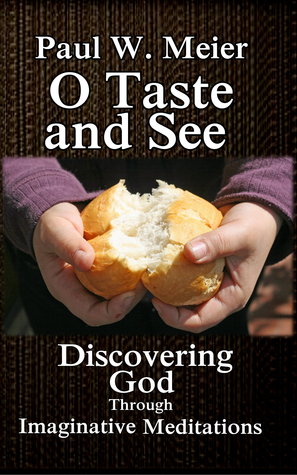“It is impossible to live without failing at something, unless you live so cautiously that you might as well not have lived at all, in which case you have failed by default.”
J.K. Rowling

Psalm 37:23-28 / Psalm 145:8-19 / Ecclesiastes 4:9-12 / Micah 7:8-9 / Luke 15:11-32 / James 4:5-10 / 1 John 5:1-5
Snapshot
As the quote implies, failure is a part of life; it doesn’t matter how many times you fall, but that you get back up and try once more. No marathon runner started life in their athletic condition; they had to learn to crawl, fall, walk and run just like the rest of us. As Thomas Edison said of his invention of the light bulb, “I have not failed; I’ve found 10,000 ways that won’t work.” That’s the kind of mindset that cannot help but succeed – it’s just a matter of time. He also said, “Many of life’s failures are people who did not realize how close they were to success when they gave up.” Our perspective is a key: If we view ourselves as failures our actions, circumstances or consequences may be a self-fulfilling prophesy, or they may in reality lead us toward success – but if we only see through the tainted view of failure, we may fail before we even begin, failing to see opportunities for success.
There have been times in my life, especially times of major decision-making, when I was grateful to be able to rely on God, bring the issues to him, and be guided and supported by him – I know that when he says yes, success will follow. Two of the most influential events in my life balanced on the edge of a knife – if I chose to obey at the right fork in the road, or not. One of those events was going to a Discipleship Training School with Youth With A Mission in 1986. I had graduated a year early from high school, and applied for the April ’86 DTS even though in the back of my mind I kept hearing “July”; but the application had already been sent when I realized my mistake. I prayed; I asked God to “fix it” because I really did want to obey. I got an acceptance letter a few weeks later – for July! And by that month all of the finances had miraculously come together! It was one of the best experiences of my life, and I’m still in touch with most of the friends I met there; they continue to inspire me. Had I failed to listen and submit to that still, small voice, I would have missed out on SO much! The second event was who I married, and how, when and where we met – but that’s a story best saved for another time! My husband and I have been together 22 years and counting.
Psalm 37:23-28 tells us that when we’re in God’s hands, even though we may stumble (fail), we won’t fall (stay down). When we’re set on doing the right things, God will bring us victory… in the endeavour, relationship, decisions, or courses of action. In Psalm 145:8-19, David writes of God’s gracious compassion and goodness to ALL he has made. Vss. 13-14 remind us that God is faithful to all his promises and loving – he upholds all who fall, and lifts up all who are “bowed down” (burdened, crushed, feel like failures). There have been moments in my life when I felt crushed by injustice, bias (against me as a woman, sadly even within the church at times), or spiritual abuse by people who were failing to walk in God’s ways; and in such times I can honestly say I felt carried by God – upheld, supported, understood, comforted – and even vindicated in the end. When humans block a goal God has for us, God will open up another way to accomplish it! Vss. 17-19 indicate why that’s possible – the Lord is near to all who call on him – he hears our cry and saves us.
Ecclesiastes 4:9-12 holds a special place in my life; these verses are the ones my husband and I chose for our wedding announcements. The key phrase for us was the last: “A cord of three strands is not quickly broken.” A single string is easily pulled in two; two strings are a bit more difficult but still easy; but a cord of three strands, woven together, is a lot tougher to tear apart. Falling symbolizes failure in some form; these verses tell us that when we fail in isolation, it’s much more difficult to pick ourselves up again. God puts people in our lives to help us, encourage us, pick us up and help us move on; but ultimately God wants to be so entwined in and through our lives that we can be strong and successful at whatever we set out to do. When we sin (fail in the spiritual sense) yet repent and submit ourselves to God again, he will restore us; “though I have fallen, I will rise. Though I sit in darkness, the Lord will be my light.” (Micah 7:8-9).
Luke 15:11-32 is the parable of the Lost Son, or the Prodigal. It’s a story of failure, restoration and mercy. We may tend to view the prodigal as the failure and the faithful son as the success; but in actual fact it’s the older son – the heir, the one who worked hard for the position he already held by birthright – who failed. He’d tried to earn acceptance yet never learned to enjoy that which was already his. The contrast between the brothers shows that contrast between the Pharisees’ self-centred exclusiveness and their failure to understand God’s love, and the Lord’s joy over the repentant sinner (which includes anyone, Pharisee or fisherman, who repents!).
James 4:5-10 tells us that the Spirit longs jealously for our full devotion; he longs to show us grace (power to overcome), and reminds us to submit to God and draw near to him so that he can draw near to us. As we humble ourselves, God lifts us up (vs. 10) – takes us from failure to victory.
Ultimate victory (overcoming) can only flow out of our relationship with Jesus (1 John 5:1-5). “Everyone born of God overcomes the world! This is the victory that has overcome the world, even our faith. Who is it that overcomes the world? Only he who believes that Jesus is the Son of God.” Right now, in the time it’s taken you to read this article, dozens of Christians have been martyred for their faith somewhere in the world. Have they failed to overcome? No. Has God failed them in any way? No. They have now received a crown of glory in a heavenly realm free of tears, pain and sorrow. They have gone home to begin their true lives, and yet their earthly lives will continue to bear fruit here (John 12:24-25). Death is not an end; eternal life is far more valuable and important than this temporal, fleeting existence.
Portrait: King Saul
In 1 Samuel, Saul was chosen by God as king over Israel because they had rejected God as their sovereign king and wanted a human king “like all the other nations” (1 Samuel 8:6-9). Saul became prideful and power-hungry, and impatient to show himself as leader; in 1 Samuel 15:22-34 he overstepped his authority and interpreted the Lord’s commands to suit himself, or perhaps to be more popular with the people (by giving them plunder, vss. 13-15). Saul failed to honour God and his commands, and as a result failed to lead the people wisely in righteousness, but gave in out of fear for his reputation (vs. 24); even though he acknowledged having sinned, he was not so much interested in repentance and restoration as he was in looking contrite and good in the eyes of others (vss. 25,30). God raised up David, a man after his own heart even though David was far from perfect – he blew it drastically on a few occasions, but his repentance was always heartfelt and humble, and that is what pleased God. Unlike Saul, when David failed he succeeded in bringing it to God and allowing himself to be forgiven, picked up, and set on the right path again.
Close-Up
Are there times in your life when you’ve felt like a failure? Was that failure in the world’s eyes, or in God’s? At the end of the day, God’s opinion is really the only one worth counting on!
 I recently discovered a book called, “O Taste and See – Discovering God through Imaginative Meditations” by Paul W. Meier; in it, he makes the point that we cannot fall in love with an abstract concept; the more concrete we can experience our relationship with Jesus, the more we can fall in love with him, and accept his love for us.
I recently discovered a book called, “O Taste and See – Discovering God through Imaginative Meditations” by Paul W. Meier; in it, he makes the point that we cannot fall in love with an abstract concept; the more concrete we can experience our relationship with Jesus, the more we can fall in love with him, and accept his love for us.